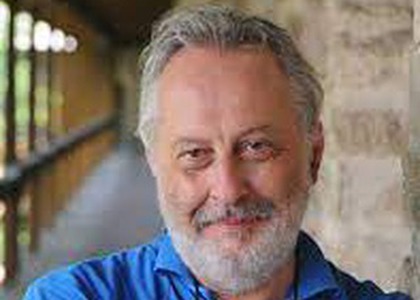> [Archived] Interviews

Interview with the violinist Florin Amzică, professor of neurophysiology in Montreal
Mr. Florin Amzică, with the World Medical Orchestra, you will perform two charity concerts in Romania together with the World Medical Orchestra. What made you come back after 7 years since your last visit, given that the ensemble does not usually perform twice in the same country?
There are several reasons why we came back. I would start with the most important one: the fact that 7 years ago we were so warmly welcomed and the tour was so successful. Basically, on one hand we felt the need to organise a tour, on the other hand there was a demand from the orchestra. Secondly, the concert from 7 years ago was one of the most successful tournaments in terms of funds raised and donated to the charitable cause for which it was set up. And this epilepsy telemedicine network that was founded in Romania 7 years ago has developed very nicely and we decided then that it was worthwhile to continue to contribute, to keep the public interested and to help the network to develop further. A successful project always brings more success.
All the funds raised from ticket sales will go towards the project you mentioned, which you initiated together with Dr. Bogdan Florea - the epilepsy telemedicine network. Why did you choose this condition as a fundraising target in Romania?
On the one hand, it was the availability of Lions clubs in Cluj and even all over the country - there were several clubs that joined and helped the tournament at the time, 7 years ago, the fact that they invited us and said they were willing to help us organize the tournament. And on the other hand, because it was a project that, from the beginning - and when I say beginning, it's not even on the day of the tournament, but a few years before - it was a project that had a chance to succeed. It was well conceived, well presented, and convinced the leadership of our organization that it was worth the effort and effort to bring the orchestra to help this project. So it was a serious project indeed.
Coming back to the upcoming concerts, it should be mentioned that they will feature violinist Alexandru Tomescu as soloist. Have you collaborated in the past?
Not with Maestro Tomescu, although I should say that we have almost collaborated in the sense that he was very generous. We would have liked to perform with him last time, but his schedule was already full at the time and the dates didn't fit, but he went to different places without any obligation and advertised our tour. He went to shopping malls where he played in front of our poster and urged people to come to the concert, knowing what paying spectators meant.
And the moment we knew we were going to do the second tour, he was the one we wanted and this time we lined up the dates and the concert will happen with his collaboration.
Now let's talk a bit about the programme you have prepared. What repertoire will you bring to the audience?
In general, we play about three pieces organized in the following pattern: a piece from the country that hosts us (and this time it will be George Enescu's Rhapsody II), a solo piece (this was our soloist's choice, the Violin Concerto No. 1 in G minor, Max Bruch's most famous concerto) and, finally, we play a symphonic piece. In general, because of the orchestra configuration and the level at which the orchestra plays, we like to tackle the large symphonic repertoire. The third piece will be Hector Berlioz's Symphonie Fantastique. The programme will end with that.
Translated by Anca Cristina Georgiana Mihai,
University of Bucharest, Faculty of Foreign Languages and Literatures, MTTLC, year II
Corrected by Silvia Petrescu














